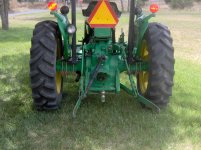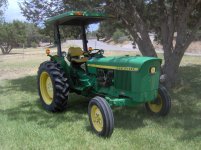James1
New member
- Joined
- Aug 11, 2009
- Messages
- 6
- Location
- Englewood, TN
- Tractor
- Kubota L2900 (1996); Kubota M4900; John Deere 820 Utility (1973)
I added a canopy and rops to my Deere 820, makes me feel a little safer. The shade is a real plus too.
And where might I locate a ROPS to fit a 1973 John Deere 820?
TIA.


